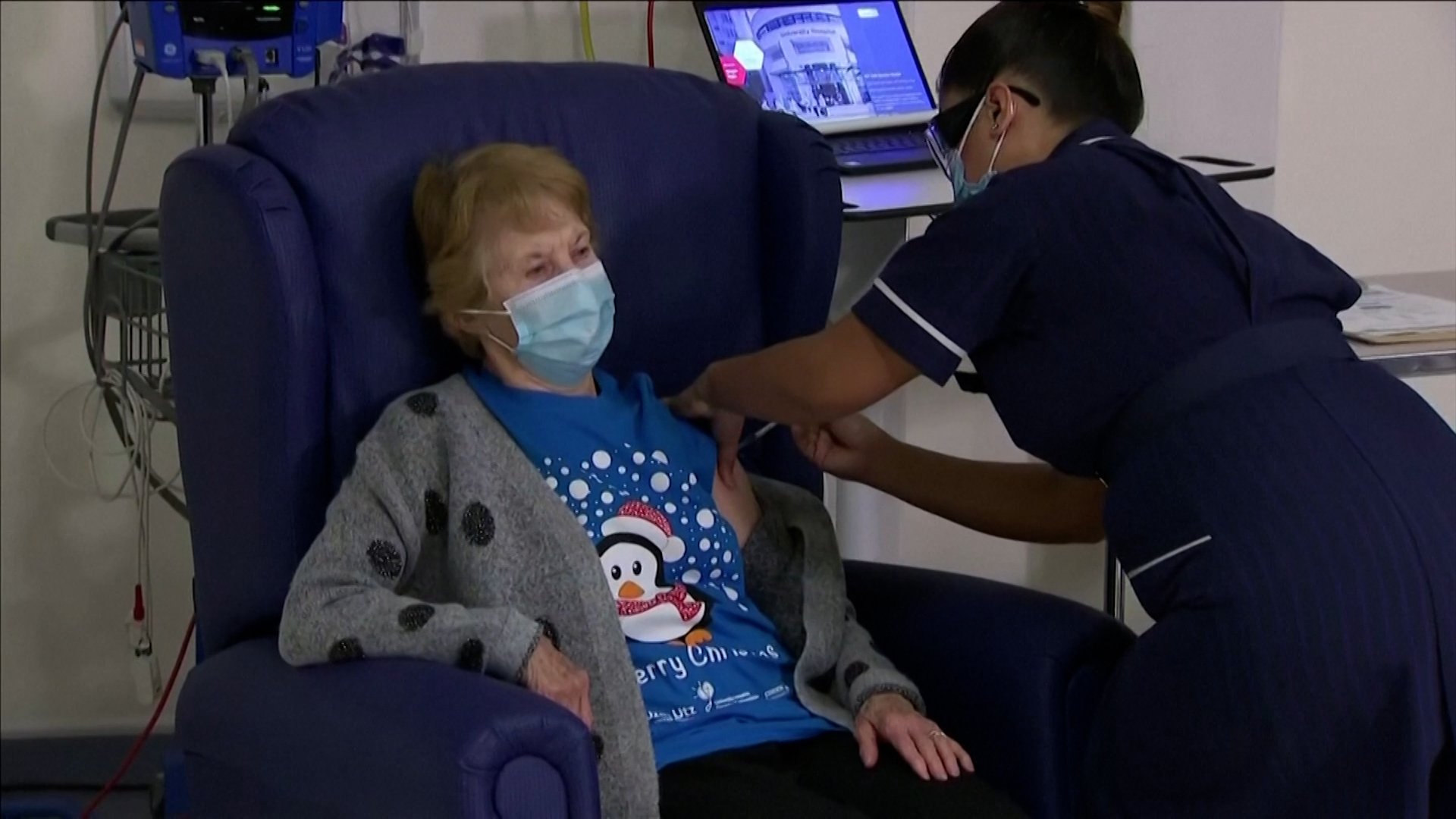02:25

The start of mass inoculation against Covid-19 in the UK is the twenty first century version of V-Day. V for vaccination rather than victory.
This battle against coronavirus will take much longer.
The first regulated vaccine from Pfizer/BioNTech is being rolled out across Britain's 4 nations simultaneously.
Initially the most vulnerable will receive their 2 doses of the vaccine, 21 days apart. Older people, and those with ill health are top of the list for the first 800,000 doses of the vaccine that's already arrived in the UK.
Everyone isn't enthused though. Speaking to a long line of people outside a post office in west London, those under 50 years of age had doubts.
David, carrying parcels to be posted, said :
I think's its been rushed through, I don't think we know enough about it … so, I don't see the reason for it … if the majority of people are surviving it (Covid-19) I don't see really why we need to have it. Or why it needs to be taken .."
David told me he wouldn't be taking the vaccine.
Tricia, cycling nearby, said it was fantastic news and the beginning of the end for the virus as society would reach herd immunity quicker…
" top scientists have worked around the clock , all over the world , and we have to trust them …

Herd immunity is achieved by protecting people from a virus, and not exposing them to it. It means a 'population immunity', as a certain percentage of the population can be protected from disease. Especially with new vaccines.
The UK is the first country to approve the Pfizer/BioNTech vaccine. Other vaccines are in the process of being analysed by the Medicines and Healthcare products Regulatory Agency (MHRA) .
Vaccines will be welcomed by most National Health Service staff, and care workers in homes for the elderly up and down the country.
Matthew, also standing patiently in the post office queue, is in his mid-twenties, said
People will take the vaccines as a false sense of security. So it's still important for people to follow the government guidelines. Otherwise I think it's a really good step in fighting the virus.
He agrees with the World Health Organization's assessment.
"Vaccines are a great tool, they will be very helpful, but the effect of the vaccine in providing some kind of immune barrier is still far off," said Dr Margaret Harris in response to a question at a Geneva news briefing about whether the vaccines would come in time to prevent a third wave of cases in Europe.
She said only public health measures can prevent a third coronavirus wave - not vaccines.
A 90 year old grandmother called Margaret Keenan was the first UK person to have the vaccine administered to her in Coventry. She said she wasn't nervous, and is now Britain's most famous grandmother
"I'm happy it's happened and now I've done it and hopefully it will help other people to come along and do as I did…"
It is a significant logistical challenge for Britain's health service. There will be 40 millions doses of various vaccines secured by the UK government. Enough to inoculate about a third of Britain's population. But, it's too early to relax social distancing rules warns Prime Minister Boris Johnson
"We haven't defeated this virus yet... it's important people to understand that the virus is, alas, still rising in some parts of the country. It's rising for instance, in London …. We can't afford to relax now.
Especially as the UK has the highest mortality rate in Europe. More than 61,000 have died from the virus, so far. His government's handling of the pandemic has often been criticised by opposition politicians.
Newspaper headlines on the UK's first day of mass vaccinating against the virus were positive, and it is seen by many as a momentous change in the fight against Covid-19.
There are high hopes life next year could be radically better than this year, especially if Moderna and the Oxford/AstraZeneca vaccines are approved.

